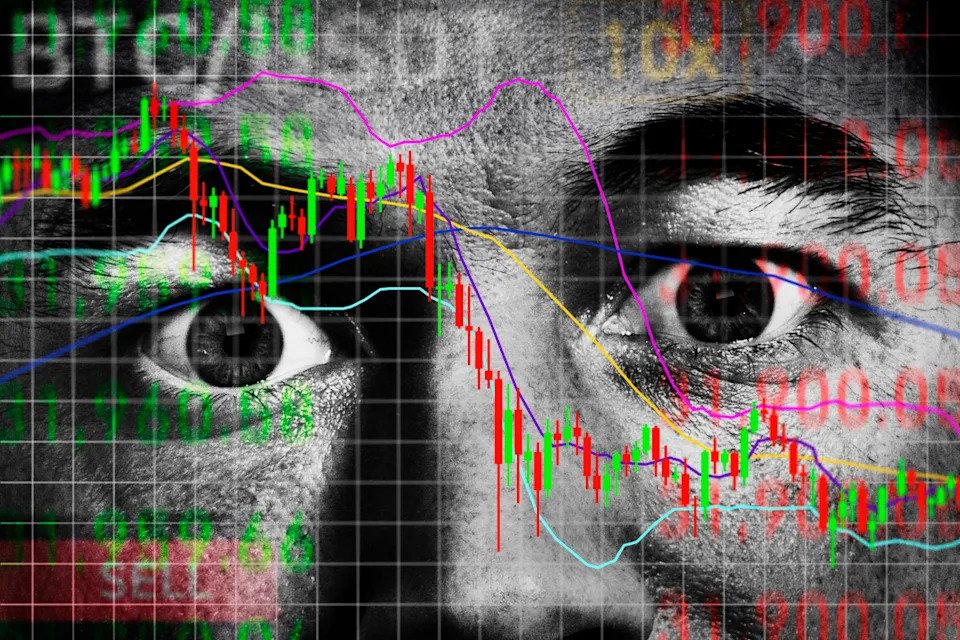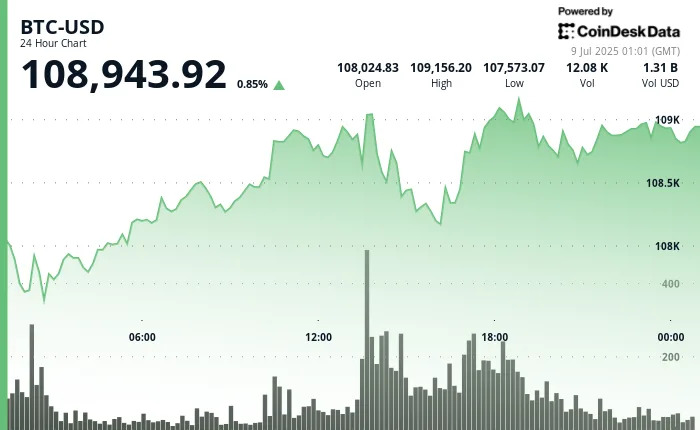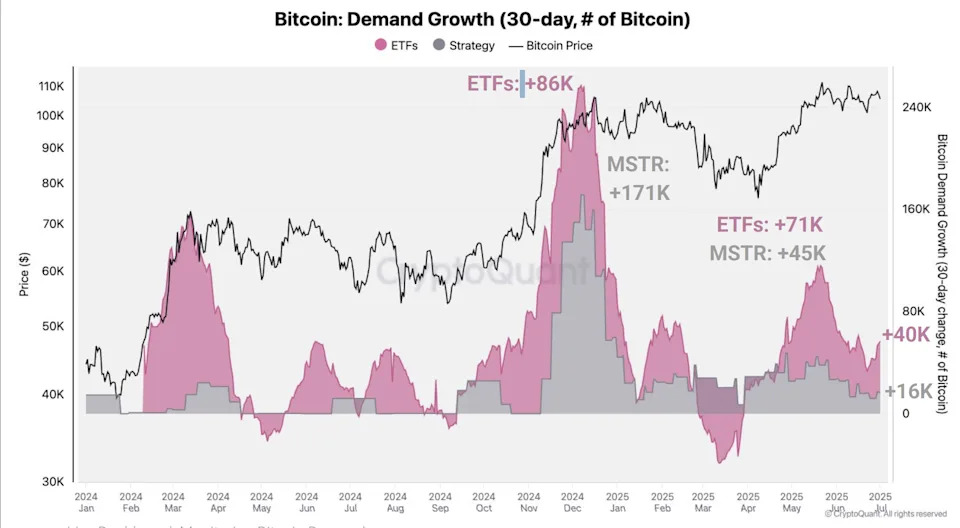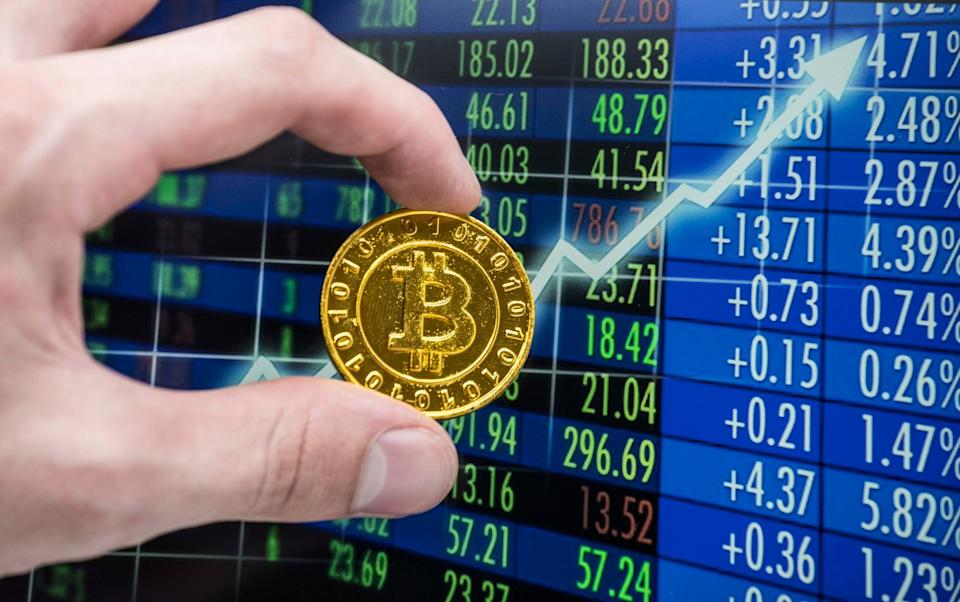Thank you! Your submission has been received!
Oops! Something went wrong while submitting the form.

Jack Ma-Backed Ant to Add Circle’s Stablecoin to Global Net
Key Points
- Ant Group Collaboration: Jack Ma-backed Ant Group Co. is partnering with Circle Internet Group Inc. to integrate Circle’s USDC stablecoin into Ant’s blockchain platform, pending US compliance.**
- Stablecoin Growth: Stablecoins are gaining traction following US Senate legislation in June that established regulatory frameworks for dollar-pegged cryptocurrencies, benefiting companies like Circle.**
- Ant International Ambitions: Ant International aims to incorporate regulated cryptocurrencies and tokenized deposits into its blockchain, which supports treasury management and cross-border payments.**
- Financial Performance: Ant International processed over $1 trillion in global transactions last year, with a third handled via blockchain, and is eyeing stablecoin licenses in Singapore, Hong Kong, and Luxembourg.**
- Market Trends: Major companies like PayPal, Walmart, and Amazon are exploring or have launched stablecoins, reflecting growing crypto adoption in financial and tech sectors.**
Summary
Ant Group Co., backed by Jack Ma, is collaborating with Circle Internet Group Inc. to integrate Circle’s USDC stablecoin into its blockchain platform, pending US regulatory compliance, as part of Ant International’s broader push into regulated cryptocurrencies and tokenized assets. This move aligns with growing acceptance of stablecoins, bolstered by recent US Senate legislation setting rules for dollar-pegged digital currencies. Circle, a publicly traded stablecoin issuer, has seen its shares surge over 500% since going public, reflecting market optimism. Ant International, which processed over $1 trillion in transactions last year, is also seeking stablecoin licenses in Singapore, Hong Kong, and Luxembourg. The unit, generating nearly $3 billion in revenue for 2024, shows strong growth potential, especially in treasury services for Alibaba’s e-commerce platforms and external clients. Meanwhile, the broader crypto landscape sees increasing adoption, with companies like PayPal, Walmart, and Amazon exploring stablecoins, despite past setbacks like Meta’s failed attempt. Ant’s blockchain already supports tokenized assets from global banks like HSBC and JPMorgan, highlighting its expanding role in cross-border payments and financial innovation.
yahoo
July 10, 2025
Crypto

WPP Names New CEO as Ad Giant Looks to AI Growth
Key Points
- WPP named Cindy Rose, Microsoft COO for Global Enterprise, as its new CEO, effective September 1, 2025, replacing Mark Read.
- Rose's expertise in digital transformation and AI is expected to be crucial for WPP as the advertising industry faces significant changes and economic uncertainty.
- The announcement follows a sharp 18% drop in WPP’s U.S.-listed shares after the company lowered its full-year outlook due to macroeconomic concerns.
- Rose aims to enhance WPP’s market-leading AI capabilities while maintaining its reputation for creative excellence and strong client relationships.
Summary
WPP, a leading global advertising agency, announced Cindy Rose, Microsoft’s Chief Operating Officer for Global Enterprise, as its new CEO, effective September 1, 2025. Rose succeeds Mark Read, who steps down after seven years, earlier than the initially planned December 31 date. The appointment comes as WPP focuses on integrating artificial intelligence and navigating industry shifts, with Rose’s extensive experience in digital transformation seen as a key asset. Chair Philip Jansen highlighted her ability to guide large organizations through technological changes, which will be vital amid macroeconomic challenges. The news follows a turbulent period for WPP, with its U.S.-listed shares dropping 18% after a lowered full-year outlook due to reduced client spending and economic uncertainty. Despite a slight 1% recovery in share price after the CEO announcement, WPP’s stock remains near a five-year low. Rose expressed optimism about building on WPP’s AI capabilities and maintaining its creative excellence and prestigious client base.
yahoo
July 10, 2025
Crypto

Ether, Dogecoin Lead Crypto Gains as Firms Signal 'Prime' Breakout Chance for Market
Key Points
- Ether (ETH-USD) and Dogecoin (DOGE-USD) led the crypto rally with gains of nearly 7% and 6% respectively, while Bitcoin (BTC-USD) neared its all-time high of $112,000.
- The CoinDesk 20 index, tracking major tokens by market cap, rose over 2%, reflecting broad gains across cryptocurrencies like Solana (SOL-USD) and XRP (XRP-USD).
- Onchain analysis from Santiment suggests retail traders are absent from the current surge, historically a sign of potential sharp upside moves as smart money accumulates.
- Crypto gains align with supportive risk sentiment, political momentum for digital asset legislation, and upcoming U.S. House Committee hearings dubbed 'Crypto Week' on July 16.
- Despite U.S. tariff threats and geopolitical noise, equity markets and tech stocks remain resilient, with Nvidia briefly hitting a $4 trillion market cap, supporting crypto's rise.
Summary
Crypto prices surged on Thursday, with Ether (ETH-USD) up nearly 7% to over $2,780 and Dogecoin (DOGE-USD) gaining 6%, leading a broader rally. Bitcoin (BTC-USD) approached its all-time high of $112,000, while Solana (SOL-USD) and XRP (XRP-USD) also posted gains. The CoinDesk 20 index rose over 2%, reflecting strong market momentum. Santiment's onchain analysis highlighted the absence of retail traders, often a precursor to significant upside as smart money steps in. This rally coincides with supportive risk sentiment and growing political focus on digital assets, including an upcoming U.S. House Committee hearing on July 16, dubbed 'Crypto Week,' aimed at positioning America as the crypto capital. Despite U.S. tariff threats from President Trump impacting some equity markets, global tech stocks like Nvidia, which briefly hit a $4 trillion market cap, and softening Treasury yields suggest a favorable policy environment. Augustine Fan from SignalPlus noted the market's anticipation for regulatory clarity, with a six-month target set by Trump in January, hoping next week’s hearing will provide momentum for a federal framework.
yahoo
July 10, 2025
Crypto

Zelenskyy’s suit bet leaves traders baffled after $240M market resolves to ‘no’
Key Points
- High-Stakes Bet: A Polymarket prediction market on whether Volodymyr Zelenskyy would wear a suit before July 1 saw over $240 million in volume, resolving to “No” despite photo evidence and media reports.**
- Controversial Outcome: Despite widespread reporting of Zelenskyy in a suit at the NATO summit, the market’s resolution shocked traders, sparking debate over decision-making processes.**
- Governance Concerns: The decision, made via UMA’s voter oracle system, faced scrutiny as a single whale allegedly controlled over 85% of voting power, raising questions about fairness.**
- Broader Implications: The incident highlights potential flaws in prediction market governance, with traders questioning the reliability of rules and resolution logic.**
Summary
A Polymarket prediction market, which wagered over $240 million on whether Ukrainian President Volodymyr Zelenskyy would wear a suit before July 1, resolved to “No,” leaving traders stunned. Despite multiple media reports and photos showing Zelenskyy in a black suit at the NATO summit, the outcome defied expectations, igniting controversy over how such decisions are made. The market’s rules required credible photographic evidence and media consensus for a “Yes” resolution, yet the final call, determined by UMA’s voter oracle system, went against apparent evidence. Allegations surfaced that a single whale, controlling over 85% of voting power, influenced the result, raising concerns about governance and fairness. This incident has sparked a broader debate about the integrity of prediction markets, with traders questioning whether published rules and resolution logic can be trusted when large sums are at stake. While no wrongdoing by Polymarket has been proven, the event underscores the challenges of subjectivity and power dynamics in decentralized betting platforms.
yahoo
July 10, 2025
Crypto

Asia Morning Briefing: Bitcoin Stalls Near $109K as Market Waits for a Catalyst
Key Points
- Bitcoin Stability: Bitcoin (BTC) trades above $108,900, remaining rangebound without significant market-moving news, while the CoinDesk 20 index is up 1.7% above 3,100.**
- Market Caution: Observers note a lack of conviction preventing BTC from reaching $110K, with low spot volumes, reduced ETF flows, and hesitant institutional investors despite high unrealized gains.**
- Investment Trends: Traders are shifting focus to high-beta assets like memecoins (DOGE, SHIB, PEPE up over 8%) and stable large-cap tokens like BTC and ETH, while interest in AI and DePIN tokens wanes.**
- Bitcoin Infrastructure Fund: Ego Death Capital closes a $100M fund to support Bitcoin infrastructure projects, focusing on startups solving real-world problems rather than speculative trades.**
- Tornado Cash Trial: A judge rules that sanctions against Tornado Cash cannot be discussed in developer Roman Storm’s trial, limits free speech defenses, and admits evidence from a co-developer’s phone.**
Summary
Bitcoin (BTC) remains rangebound above $108,900 as Asia starts Wednesday trading, with the CoinDesk 20 index up 1.7%, though market conviction is lacking to push BTC to $110K. Glassnode reports low spot volumes and reduced ETF flows, while Wintermute describes a “barbell market” with interest split between memecoins (up over 8%) and stable large-caps like BTC and ETH. Meanwhile, last year’s popular AI and DePIN tokens lose traction. Ego Death Capital’s new $100M fund targets Bitcoin infrastructure startups, emphasizing durability over speculation. In legal news, a judge in the Tornado Cash case bars discussion of overturned sanctions in developer Roman Storm’s trial, limits free speech defenses, and admits contested evidence. Market movements show BTC holding above $108K, Ethereum up 3% to $2,610, gold down 1.2%, and mixed Asian markets with the Nikkei 225 slightly lower. Global equities shrug off geopolitical tensions, but BTC’s hesitancy reflects trader caution awaiting clearer signals for a decisive breakout.
yahoo
July 9, 2025
Crypto

Prediction: Bitcoin Will Become a Reserve Currency
Key Points
- Bitcoin's scarcity, with a hard cap of 21 million coins and a decreasing issuance rate through halvings, makes it an attractive reserve asset for central banks.
- Its neutrality and independence from political or sanctions influence provide a hedge against currency volatility, similar to gold but with faster, cheaper digital transactions.
- Infrastructure for custody and access is rapidly improving, with SEC guidance changes and ETF availability making it easier for central banks to hold Bitcoin.
- Sovereign interest is growing, with entities like the Czech National Bank exploring Bitcoin allocations, signaling potential future adoption as a reserve asset.
- Despite price volatility and regulatory risks, increasing liquidity and institutionalization suggest Bitcoin's path to becoming a reserve asset is increasingly plausible.
Summary
This article explores the potential for Bitcoin (CRYPTO: BTC) to become a reserve asset for central banks within the next decade, akin to gold and U.S. Treasuries. Bitcoin's appeal lies in its scarcity, with a fixed supply of 21 million coins and a halving mechanism that reduces inflation over time. Its neutrality offers a hedge against political and economic volatility, while digital transactions provide a faster, cheaper alternative to gold. Infrastructure advancements, such as improved custody solutions and ETF availability following SEC policy shifts, are removing barriers for institutional adoption. Sovereign interest is also rising, with governments holding 2.3% of mined Bitcoin and the Czech National Bank considering a significant allocation. Although challenges like price volatility and potential regulatory crackdowns remain, the article argues that growing liquidity and institutional support make Bitcoin's transition to a reserve asset increasingly likely. For investors, this could mean sustained demand and higher long-term value as central banks adopt a permanent holding mindset similar to gold.
The Motley Fool
July 9, 2025
Crypto

Grant Cardone’s Recent Move Could Mean Good News for Bitcoin: Is It Time To Invest?
Key Points
- Cardone Capital's Bitcoin Investment: Grant Cardone's real estate firm, Cardone Capital, recently purchased 1,000 bitcoin valued at over $101 million, marking a significant shift towards integrating cryptocurrency into its investment strategy.**
- Future Plans: The company plans to acquire an additional 3,000 bitcoin and 5,000 residential units by the end of the year, indicating a strong commitment to expanding its cryptocurrency holdings.**
- Market Impact: This move by a traditional finance entity may encourage other investors to consider bitcoin, as it reflects thorough due diligence and belief in bitcoin's potential for financial returns.**
- Investment Considerations: Bitcoin remains a relatively new asset with limited historical data, so investors should balance their portfolios based on risk tolerance and seek financial advice to mitigate risks.**
Summary
Grant Cardone’s real estate firm, Cardone Capital, has made headlines by purchasing 1,000 bitcoin worth over $101 million, signaling a major pivot towards cryptocurrency integration in its investment strategy. Announced on June 21 via X, this move positions Cardone Capital as a pioneer in blending real estate with bitcoin, with plans to acquire an additional 3,000 bitcoin and 5,000 residential units by year-end. This significant investment, as reported by Cointelegraph and CoinDesk, could influence other traditional finance entities and hesitant investors to explore bitcoin, given the thorough vetting such firms undertake. However, the article emphasizes that bitcoin is still a nascent asset lacking extensive historical data, urging investors to align allocations with personal risk tolerance. While Cardone’s move may be a bullish sign for bitcoin, diversification, expert guidance, and consistent portfolio oversight are recommended to manage potential risks. The decision to invest remains personal, balancing bitcoin with traditional assets like mutual funds and ETFs to suit individual financial goals.
yahoo
July 8, 2025
Crypto

Strategy Posts $14 Billion Unrealized Gain in Second Quarter
Key Points
- Michael Saylor’s Strategy reported an unrealized gain of $14.05 billion in Q2, driven by a Bitcoin price rebound and a new accounting change.
- Strategy holds approximately $65 billion in Bitcoin, making it the largest corporate holder of the cryptocurrency.
- The company acquired $6.8 billion in Bitcoin during the quarter ending June 30, funded partly through sales of shares and debt offerings.
- Strategy’s shares have surged over 3,300% since 2020, significantly outperforming Bitcoin’s 1,000% rise and the S&P 500’s 115% increase.
- Despite high Bitcoin-related gains, Strategy’s software business revenue is expected to be only $112.8 million for the quarter.
Summary
Michael Saylor’s Strategy, formerly MicroStrategy Inc., reported a staggering $14.05 billion unrealized gain in the second quarter, fueled by a Bitcoin price rebound and a recent accounting change that values its holdings at market prices. This gain was offset by a $4.04 billion deferred tax expense. Owning about $65 billion in Bitcoin, Strategy is the largest corporate holder of the cryptocurrency, having acquired $6.8 billion worth in the quarter ending June 30. Saylor has transformed the company into a leveraged Bitcoin proxy through share sales and debt offerings, including a new at-the-market sales program for preferred stock. While Strategy’s Bitcoin strategy has driven a 3,300% stock surge since 2020—outpacing Bitcoin’s 1,000% and the S&P 500’s 115% gains—its core software business is expected to generate just $112.8 million in revenue. The accounting shift, adopted in Q1, has led to significant earnings volatility, with a record $4.2 billion loss reported earlier due to a Bitcoin price drop. Strategy’s focus on Bitcoin continues to overshadow its traditional operations, positioning it alongside giants like Amazon and JPMorgan in terms of operating profit potential for the quarter, with results due in August.
yahoo
July 8, 2025
Crypto

AllUnity obtains EMI licence from BaFin for Euro stablecoin
Key Points
- AllUnity has obtained an e-money institution (EMI) licence from the German Federal Financial Supervisory Authority (BaFin), enabling the launch of its Euro stablecoin, EURAU.
- EURAU is fully collateralised with proof-of-reserves and complies with the Markets in Crypto-Assets Regulation (MiCAR) framework under German oversight.
- The stablecoin facilitates cross-border settlements and integrates with regulated financial institutions, fintechs, and enterprise clients across Europe and beyond.
- AllUnity, a joint venture of DWS, Flow Traders, and Galaxy, aims to build a secure, transparent, and compliant digital payment ecosystem.
- The company partnered with Crypto Risk Metrics to align EURAU issuance with environmental, social, and governance (ESG) standards.
Summary
AllUnity, a joint venture between DWS, Flow Traders, and Galaxy, has secured an e-money institution (EMI) licence from Germany’s Federal Financial Supervisory Authority (BaFin). This authorisation allows the company to launch EURAU, a BaFin-licenced Euro stablecoin, designed to comply with the Markets in Crypto-Assets Regulation (MiCAR) framework. EURAU is fully collateralised with proof-of-reserves and aims to enable seamless cross-border settlements for regulated financial institutions, fintechs, and enterprises across Europe and globally. AllUnity’s CEO, Alexander Höptner, highlighted the licence as a crucial step toward creating a secure and transparent digital payment ecosystem. To meet environmental, social, and governance (ESG) standards, AllUnity partnered with Crypto Risk Metrics to ensure regulatory adherence under German oversight. The company also offers 24/7 real-time settlement infrastructure. Its partners bring expertise in asset management (DWS), trading and digital assets (Flow Traders), and institutional crypto services (Galaxy), positioning AllUnity as a leader in compliant digital finance innovation.
yahoo
July 8, 2025
Crypto

'America Party' to embrace Bitcoin, Elon Musk says fiat is hopeless
Key Points
- Elon Musk's "America Party" will embrace Bitcoin, with Musk stating that fiat currency is "hopeless."
- The announcement received positive reactions from the crypto community, with figures like Brandon Turp and Ben Pham expressing strong support.
- Musk's move comes amid a public feud with Donald Trump and dissatisfaction with the U.S. two-party system, prompting the launch of this new political party.
- Bitcoin's price saw an uptick following the announcement, rising from $108,735.07 to $109,627.25, and trading at $109,158.81 as per Kraken.
- Questions remain about Tesla accepting Bitcoin payments again and the potential role of stablecoins like Tether in the party's financial strategy.
Summary
Elon Musk has confirmed that his newly launched "America Party" will embrace Bitcoin, declaring fiat currency as "hopeless" in response to a query on X. This announcement, made on July 6, sparked enthusiastic reactions from the crypto community, with leaders like Brandon Turp and Ben Pham praising the move as a potential savior for the nation. Musk's decision to launch the party stems from his dissatisfaction with the U.S. two-party system and a public feud with Donald Trump over legislative issues, despite previously supporting Trump's campaign and leading the Department of Government Efficiency (D.O.G.E.). While Bitcoin's price surged following the news, reaching $109,627.25 from $108,735.07, questions linger about Tesla resuming Bitcoin payments, which were halted in 2021 due to environmental concerns. Additionally, discussions around stablecoins like Tether (USDT), the largest stablecoin with a $159.46 billion market cap, surfaced as a potential means to bolster fiat. Musk's political and financial moves continue to draw significant attention, blending cryptocurrency advocacy with political innovation, though hopes for Dogecoin integration remain unfulfilled among enthusiasts.
yahoo
July 7, 2025
Crypto

Asia Morning Briefing: Michael Saylor's BTC Buys Aren't Making Up For Slowing Spot Demand, Say Analysts
Key Points
- Bitcoin (BTC) is trading at $109K, up 0.8% in the last week and 4.5% in the last month, but remains in a consolidation phase without a breakout.
- A CryptoQuant report highlights a decline in spot demand for BTC, with a contraction of -895K over the last 30 days, offsetting institutional purchases by ETFs and Michael Saylor's Strategy (MSTR).
- Institutional buying has slowed, with ETF purchases dropping from 86,000 BTC in December to 40,000 recently, and MSTR buys decreasing from 171,000 to 16,000.
- Anthony Scaramucci of SkyBridge Capital predicts the BTC treasury trend, a key demand driver, will fade, while Standard Chartered maintains a bullish $200K price target for BTC.
- Additional indicators of low demand include BTC's nearly empty mempool, reflecting minimal retail spot interest.
Summary
Bitcoin (BTC) is currently trading at $109K, showing modest gains of 0.8% over the past week and 4.5% over the last month, yet it remains in a consolidation phase without breaking past all-time highs. A CryptoQuant report reveals a significant decline in spot demand, with a contraction of -895K BTC in the last 30 days, overshadowing institutional purchases by ETFs and Michael Saylor’s Strategy (MSTR). Institutional buying has notably slowed, with ETF purchases dropping from 86,000 BTC in December to 40,000 recently, and MSTR buys falling from 171,000 to 16,000. This weakening demand is further evidenced by BTC’s nearly empty mempool, indicating low retail interest. SkyBridge Capital’s Anthony Scaramucci suggests the trend of companies adopting BTC as a treasury asset, a key demand driver, may fade, though he remains bullish on BTC overall. Meanwhile, Standard Chartered holds a positive outlook, targeting a $200K price for BTC. Other market movements include Ethereum rallying to $2,558.63 with strong ETF inflows, gold surging 1.91% to $3,336.61 amid a weakening dollar, and Japan’s Nikkei 225 slipping 0.26% due to tariff uncertainties. The crypto market faces challenges from declining demand, raising questions about potential resistance to BTC’s price if institutional support continues to wane.
yahoo
July 7, 2025
Crypto

5 Best Crypto Investments Besides Bitcoin for the Rest of 2025
Key Points
- Ethereum (ETH) remains a top altcoin with strong market cap, ongoing upgrades, and dominance in DeFi, NFTs, and dApps, bolstered by potential layer-2 scaling solutions.**
- Solana (SOL) offers long-term investment potential despite a recent dip in portfolio holdings, thanks to its low-cost, high-volume transaction capabilities for DeFi and NFT projects.**
- XRP (Ripple) is gaining traction with doubled portfolio holdings, driven by potential ETF approval and its efficiency in fast, low-cost cross-border payments.**
- Chainlink (LINK) is a key player in decentralized oracles, essential for DeFi and Web3 growth, making it a valuable portfolio addition.**
- Tron (TRX) is an under-the-radar blockchain with high usage for stablecoin transactions and cheaper smart contract operations, with potential ETF approval on the horizon.**
Summary
As Bitcoin continues to lead the cryptocurrency market with strong institutional adoption, investors are increasingly eyeing altcoins for diversification and high potential returns in 2025. Ethereum (ETH) holds its position as the second-largest crypto by market cap, benefiting from renewed interest, network upgrades, and dominance in DeFi, NFTs, and dApps. Solana (SOL), despite a recent drop in portfolio holdings, remains a compelling long-term investment due to its low-cost, high-volume transaction capabilities. XRP (Ripple) has seen a surge in investor interest, with portfolio holdings doubling, fueled by speculation of an ETF approval and its utility in cross-border payments. Chainlink (LINK) stands out as the leading decentralized oracle network, critical for DeFi and Web3 applications. Lastly, Tron (TRX) is gaining traction as a cost-effective blockchain for stablecoin transactions and smart contracts, with a potential ETF filing adding to its appeal. These five altcoins present diverse opportunities for investors looking beyond Bitcoin to enhance their crypto portfolios for the remainder of 2025.
yahoo
July 5, 2025
Crypto

YBIT Is an Income Juggernaut
Key Points
- YBIT Strategy: YBIT is an ETF designed to generate income from Bitcoin's volatility by writing covered calls on synthetic long positions in a Bitcoin ETF like iShares Bitcoin Trust (IBIT).**
- High Yield Concerns: It offers a massive annual distribution rate of 41.5%, but over 90% of its 2024 distributions were from return of capital (ROC), not options income.**
- Performance Issues: Despite its high yield, YBIT's shares dropped 38% over the past year while Bitcoin rose 76%, with a total return of just 15% including reinvested distributions.**
- High Fees: YBIT charges a high gross expense ratio of 0.99%, which further erodes returns for investors.**
- Risks and Complexity: Its complex strategy of layering options on options can lead to unstable returns in volatile markets, making it a risky choice for income-focused investors.**
Summary
Tidal's YieldMax Bitcoin Option Income Strategy ETF (YBIT) aims to capitalize on Bitcoin's volatility by generating income through writing covered calls on synthetic long positions in the iShares Bitcoin Trust (IBIT). Boasting a striking 41.5% annual distribution rate, YBIT appears as an income powerhouse. However, its strategy is intricate, involving options on options, which can lead to unstable returns in turbulent markets. Over 90% of its 2024 distributions were from return of capital, essentially returning investors' own money rather than genuine income. Performance-wise, YBIT underperformed significantly, with a 38% share decline over the past year against Bitcoin's 76% rise, achieving only a 15% total return with reinvested distributions. Additionally, its high 0.99% expense ratio cuts into returns. While YBIT offers a simplified, tax-efficient way to gain Bitcoin exposure with downside protection via distributions, its complexity, high fees, and underwhelming results make it a less attractive option. Investors seeking Bitcoin exposure or income might find better alternatives in direct cryptocurrency investments or traditional dividend ETFs.
The Motley Fool
July 5, 2025
Crypto

Elon Musk is quietly stacking an uncommon asset
Key Points
- Elon Musk's Social Media Activity: Musk liked a comment on X suggesting he might be quietly accumulating Bitcoin, sparking significant buzz in the crypto community.**
- Tesla's Bitcoin Holdings: Tesla holds over $1 billion in Bitcoin and briefly accepted it as payment in 2021 before discontinuing due to environmental concerns.**
- Bitcoin's Market Dominance: Bitcoin, launched in 2009, is the largest cryptocurrency with a $2.1 trillion market cap, representing over 60% of the total crypto market.**
- Bitcoin's Value Growth: Since July 4, 2024, Bitcoin's value has increased by nearly 85%, trading at $107,750.71 as of July 4, 2025.**
Summary
Elon Musk, a prominent figure in the crypto community, recently stirred excitement on social media platform X by liking a comment suggesting he might be quietly accumulating Bitcoin (BTC). This interaction, confirmed to be from Musk himself, reignited discussions about his involvement with the cryptocurrency. Musk's history with Bitcoin is well-documented, as Tesla, his electric vehicle company, holds over $1 billion in BTC and briefly accepted it as payment in 2021 before halting due to environmental concerns over mining. Bitcoin, launched in 2009, remains the world's largest cryptocurrency with a market cap of $2.1 trillion, dominating over 60% of the $3.3 trillion crypto market. As of July 4, 2025, Bitcoin's value has surged nearly 85% since the previous year, trading at $107,750.71. While Musk's actions continue to influence crypto conversations, the article emphasizes the importance of independent research before making investment decisions, highlighting the speculative nature of such social media interactions.
yahoo
July 5, 2025
Crypto

Top analyst who correctly predicted market rally turns bullish on rising tech stock
Key Points
- Robinhood's Innovation: Robinhood has introduced zero-commission, tokenized U.S. stocks and private-company tokens on Arbitrum, an Ethereum layer-2 blockchain, aiming for 24/7/365 trading with near-instant settlement.**
- Bullish Outlook: Bitwise CIO Matt Hougan, who accurately predicted a crypto rally in September 2024, is very bullish on Robinhood, believing it is ahead of market trends by leveraging blockchain technology.**
- Boost for Ethereum and Arbitrum: Hougan anticipates increased interest in Ethereum and Arbitrum due to Robinhood’s use of these platforms, driving more users to on-chain assets and decentralized applications.**
- Market Evolution: The shift to tokenized securities could redefine market dynamics, with Hougan noting the rapid transition from traditional settlement models to blockchain-based systems.**
- Institutional Potential: While not yet available to U.S. investors, tokenized stocks signal a future where institutional players may adopt continuous, on-chain markets for enhanced liquidity and efficiency.**
Summary
Robinhood has made a groundbreaking move by launching zero-commission, tokenized U.S. stocks and private-company tokens on Arbitrum, an Ethereum layer-2 blockchain, as reported by TheStreet on July 4, 2025. This initiative aims to enable 24/7/365 trading with near-instant settlement, a significant departure from traditional market hours. Bitwise CIO Matt Hougan, a veteran analyst who correctly predicted a crypto rally in 2024, expressed strong optimism about Robinhood’s direction, stating it shows where the market is headed. He believes this move will boost interest in Ethereum and Arbitrum, attracting both retail and institutional users to on-chain assets. Hougan also highlighted the rapid shift toward tokenized securities, predicting that in a few years, the industry will marvel at how quickly traditional models were replaced. Although currently unavailable to U.S. investors, this development signals a future of continuous, blockchain-based markets that could unlock new liquidity and reduce risks for long-term investors. With Robinhood at the forefront, tokenized stocks may redefine trading dynamics, placing blockchain technology at the core of financial innovation.
yahoo
July 5, 2025
Crypto

Wall Street’s hottest debate pits Jim Chanos against Michael Saylor
Key Points
- Jim Chanos Criticism: Prominent short seller Jim Chanos has intensified his critique of Michael Saylor’s bitcoin-focused strategy at MicroStrategy (MSTR), arguing that the company’s valuation exceeds the value of its bitcoin holdings and suggesting investors buy bitcoin directly.**
- MicroStrategy’s Bitcoin Holdings: MicroStrategy holds 597,325 bitcoins valued at approximately $64 billion as of June 30, making it the largest corporate holder, with its stock soaring 210% over the past year, outpacing bitcoin’s 80% gain.**
- Saylor’s Defense: Saylor counters criticism by highlighting the ease of owning MicroStrategy shares compared to bitcoin or ETFs due to regulatory compliance, and advocates for leveraging debt to amplify returns on bitcoin investments.**
- Wall Street Debate: The public feud between Chanos and Saylor has drawn significant attention on Wall Street, with Chanos labeling Saylor’s approach as “financial gibberish” and Saylor predicting Chanos’s potential financial ruin if MSTR stock rises.**
- Market Trends and Risks: Despite short sellers losing $3.6 billion betting against MicroStrategy in 2025, lawsuits and analyst concerns highlight risks tied to bitcoin volatility and the sustainability of MSTR’s debt-fueled strategy.**
Summary
Jim Chanos, a renowned Wall Street short seller, has escalated his criticism of Michael Saylor’s bitcoin-centric strategy at MicroStrategy (MSTR), calling it overvalued and advising investors to buy bitcoin directly. MicroStrategy, originally a software firm, now holds 597,325 bitcoins worth $64 billion, becoming the largest corporate holder, with its stock surging 210% in the past year, far outpacing bitcoin’s 80% gain. Saylor defends his approach, emphasizing the accessibility of MSTR shares over direct bitcoin ownership due to regulatory ease and promoting leveraged investments for higher returns. The public clash between Chanos and Saylor has gripped Wall Street, with Chanos dismissing Saylor’s model as “financial gibberish,” while Saylor predicts Chanos’s downfall if MSTR stock rises. Despite short sellers losing $3.6 billion betting against MSTR in 2025, the company faces lawsuits over misleading investors about bitcoin volatility risks and analyst warnings about the sustainability of its debt-driven strategy. Meanwhile, other firms are adopting similar bitcoin treasury strategies, intensifying competition for capital, though short sellers have profited more from betting against MSTR imitators.
yahoo
July 4, 2025
Crypto